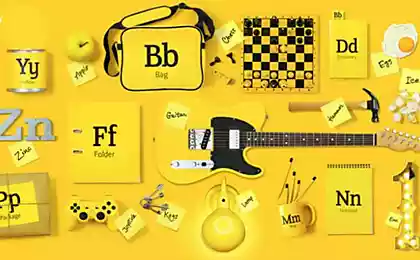205
What English phrases should be learned
Hello, dear friends! Hello my dear friends - this is how the greeting sounds. You’ve probably heard this phrase before, because English is everywhere nowadays. Online, at work, in movies and music, even in appliance instructions. It is important to know the language at least at a basic level.

It's a special edition for you. "Site" I have collected the most popular phrases in English – read, memorize and practice. We'll study together.
To improve English, it is worth starting with the study of spoken phrases. This article contains the most popular expressions for communication on any topic. Increase your vocabulary and make your speech richer.

It all starts with a greeting. We say hello to each other. How are you? and we start a dialogue. To know the language at a higher level, it is worth diluting the banal “Hello” and “How are you?” with other possible options.

Greetings and goodbyes
We recommend using preface language. With the help of introductory constructions, proposals are built more coherently: it is easier to catch the train of thought. This is a great way to emphasize the emotionality of speech.

Introduction
People express an opinion through agreement or disagreement with the position of the interlocutor. In addition to “yes”, “no” and “maybe”, there are many other ways to explain your point of view. Let’s look at a few simple useful designs.

Consent and dissent
Needless to say, it is much more pleasant to communicate with polite people. It certainly will not be superfluous to remember a couple of phrases that will come in handy to express gratitude, apology or simple courtesy.
1483,358
Politeness
To look like an interested interlocutor, you need to be able to correctly express your passion. We suggest you learn a few phrases to english It was a lot easier.

Ways to keep the conversation going
Finally, I would like to add a couple of popular phrases beginning with “I” – the pronoun “I” in English.
61250
Phrases I

It's never too late to learn. If your English is not yet at the level of the Queen of England, do not worry: gradually, starting with less, you can learn any foreign language. The main thing is to study and do not forget to practice. Good luck!

It's a special edition for you. "Site" I have collected the most popular phrases in English – read, memorize and practice. We'll study together.
To improve English, it is worth starting with the study of spoken phrases. This article contains the most popular expressions for communication on any topic. Increase your vocabulary and make your speech richer.

It all starts with a greeting. We say hello to each other. How are you? and we start a dialogue. To know the language at a higher level, it is worth diluting the banal “Hello” and “How are you?” with other possible options.

Greetings and goodbyes
- How is going? - How's it going?
- How are things? - How is it?
- Long time no see! - It's been a while!
- What are you up too? - What are you doing?
- What have you been up to? - What have you been doing all this time?
- See you soon! - See you soon!
- See you later! - See you later!
- Take care! - Take care!
- Talk to you later! - We'll talk to you later!
- Until we meet again! - See you again!
- Have a nice day! - Have a good day!
- Have a good weekend! - Have a good weekend.
- Have a safe trip! - Good trip.
- Say hi to... - Say hello to me.
- Send my love to... - Say hello... (if it's about relatives or close people)
We recommend using preface language. With the help of introductory constructions, proposals are built more coherently: it is easier to catch the train of thought. This is a great way to emphasize the emotionality of speech.

Introduction
- In short / in brief - in brief
- In a word - in two words
- As far / as to - as far as
- Not to mention - not to mention
- First of all / above all - first of all
- What's more - besides
- By the way.
- After all, in the end, after all.
- Just for the record - for reference; so you know
- If I'm not mistaken - if I'm not mistaken
- In other words, in other words
- On the contrary, the opposite
- The thing is, the thing is that
- All the same - whatever
- Such as, for example,
People express an opinion through agreement or disagreement with the position of the interlocutor. In addition to “yes”, “no” and “maybe”, there are many other ways to explain your point of view. Let’s look at a few simple useful designs.

Consent and dissent
- Maybe - maybe
- Of course / Sure - Of course
- Definitely - Definitely, certainly.
- Absolutely - Absolutely.
- Naturally.
- Probably.
- You're right. You're right.
- It can hardly be so - I don't think so.
- I don't think so - probably
- Most unlikely - I don't think so; unlikely
- Not a bit - Not a bit
- I believe so / suppose so - I think so
- I doubt it - I doubt it
- No way, no way, no way.
- I'm not sure. I'm not sure.
Needless to say, it is much more pleasant to communicate with polite people. It certainly will not be superfluous to remember a couple of phrases that will come in handy to express gratitude, apology or simple courtesy.
1483,358
Politeness
- I'm so sorry! - I'm so sorry!
- I beg your pardon! - Excuse me!
- I'm sorry, I can't. - Sorry, I can't.
- Sorry, I meant well. - Sorry, I meant well.
- It's very kind of you! - That's very nice of you!
- Thank you anyway! - Thank you anyway!
- Thank you in advance! - Thank you in advance!
- Don't mention it! - Don't thank me!
- May I help you? - Can I help you?
- No problem / that's ok! - It's all right!
- Don't worry about it! - Don't worry about it!
- This way, please! - This way, please!
- After you! - After you!
- Nice to meet you! - Good to see you!
- You're welcome. - Please contact me again.
To look like an interested interlocutor, you need to be able to correctly express your passion. We suggest you learn a few phrases to english It was a lot easier.

Ways to keep the conversation going
- What's the matter? - What is it?
- What's going on? / What's happening? - What's going on?
- What's the trouble? - What's the problem?
- What's happened? - What happened?
- How was it? - How is it? (How did it go?)
- Did I get you right? - Did I get you right?
- Don't take it to heart. - Don't take it personally.
- I didn't catch the last word. - I didn't get the last word.
- Sorry, I wasn't listening. - Sorry, I listened.
- It doesn't matter. - It doesn't matter.
- Let us hope for the best. - Let's hope for the best.
- Things happen. - Things happen.
- Where were we? - Where were we?
- I'm sorry, I didn't catch you. - Sorry, I didn't hear you.
- So that's where the trouble lies! - That's the thing!
Finally, I would like to add a couple of popular phrases beginning with “I” – the pronoun “I” in English.
61250
Phrases I
- I agree. I agree.
- I don't care - I don't care.
- I don't know - I don't know
- I don't like it - I don't like it.
- I don't mind - I don't mind.
- I miss you, I miss you.
- I need help, I need help.
- I think so.
- I'm fine, thank you - I'm fine, thank you
- I'm sorry - I'm sorry
- I'm Thirsty - I'm Drinking
- I don't understand - I don't understand.
- I love you - I love you
- I'll be back, I'll be back.

It's never too late to learn. If your English is not yet at the level of the Queen of England, do not worry: gradually, starting with less, you can learn any foreign language. The main thing is to study and do not forget to practice. Good luck!























